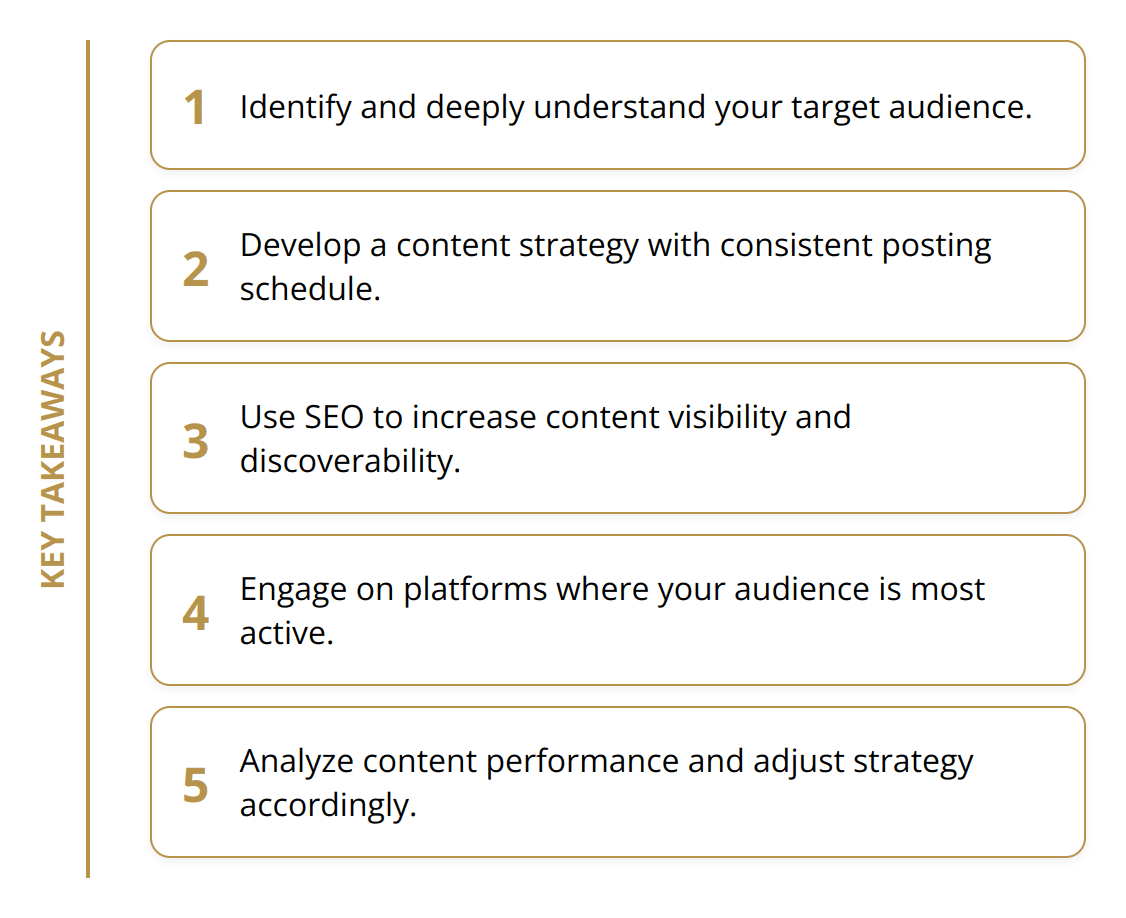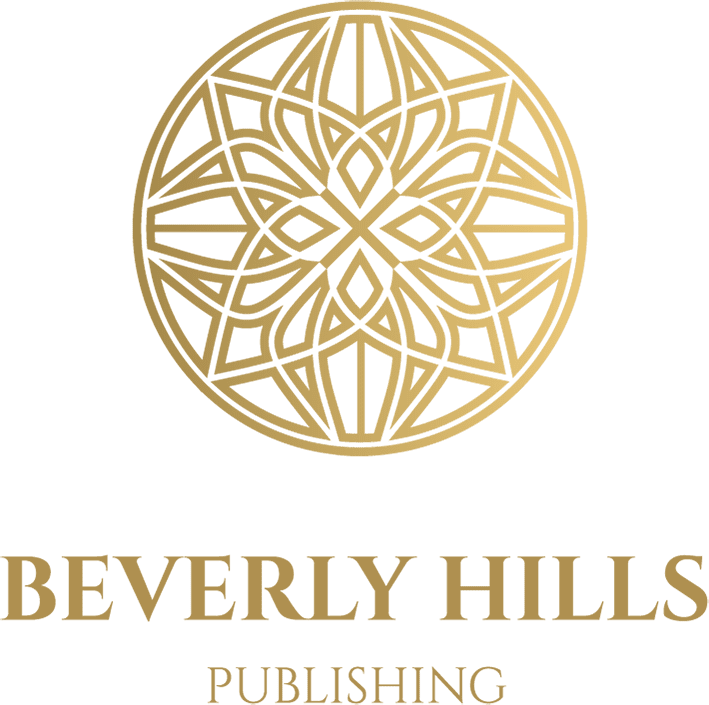At Beverly Hills Publishing, we understand that navigating the world of content marketing can often feel like a labyrinth, especially for authors striving to make a mark. That’s why we’ve created a guide designed to demystify this process, offering clear, actionable strategies tailored for writers.
This guide aims to equip authors with the knowledge and tools needed to effectively use content marketing, distinguishing their work in a crowded market and connecting with their ideal readers. Let’s explore how to build a robust content marketing strategy that amplifies your voice and propels your books to success.
Content Marketing Essentials for Authors
Content marketing is not just a trend; it’s a powerful tool for authors to build visibility, engage with their readers, and sell more books. In a landscape where traditional advertising often falls short, especially for independent and self-published authors, content marketing offers a path to connect directly with your audience on a personal level.
The Shift from Traditional to Content Marketing
Traditional marketing relies on interruptive techniques, such as ads and direct mail, which aim to capture the audience’s attention in a fleeting moment. However, these methods are losing effectiveness in a world where consumers have more control over what information they consume. Content marketing, on the other hand, focuses on creating and distributing valuable, relevant, and consistent content to attract and retain a clearly-defined audience. For authors, this means sharing insights, stories, and information that resonate with your readers, encouraging engagement without direct selling.
Why Authors Can’t Afford to Ignore Content Marketing
Authors need content marketing more than ever. It’s no longer enough to write a great book; you need to actively participate in bringing it to your audience. Content marketing helps establish your authority in your genre or subject area, builds your brand as an author, and creates a community around your work. This approach leads to higher engagement and, ultimately, more book sales. It’s about playing the long game, building relationships with your readers through consistently delivered value.

Practical Steps to Leverage Content Marketing
- Identify Your Audience: Understanding who your readers are is the first step. What are their interests? What problems do they face that your books or insights can solve?
- Develop a Content Strategy: Plan the types of content you will create. Blogs, podcasts, videos, and social media posts are all effective formats. Consider starting a blog on your website or creating a YouTube channel for book trailers and author interviews.
- Consistency is Key: Determine a content schedule and stick to it. Whether it’s a weekly blog post or daily social media updates, consistency keeps your audience engaged.
- Engage with Your Audience: Respond to comments, questions, and feedback. Community building is a cornerstone of effective content marketing.
- Analyze and Adjust: Use tools like Google Analytics to track the performance of your content. Which types of content resonate most with your audience? Learn and adjust your strategy accordingly.

Bridging the Gap Between Content and Sales
The beauty of content marketing for authors is its subtlety. Rather than pushing sales, it pulls readers in with valuable content, establishing a relationship first. The sales come later, as a natural step for readers who’ve come to trust and value your voice and expertise.
For authors willing to invest the time in understanding their audience and crafting content that speaks to them, content marketing is not just essential; it’s transformative. It turns the solitary act of writing into a dialogue with readers, laying the foundation for long-term success in an ever-evolving literary landscape.
Crafting Your Strategy
When it comes to content marketing for authors, a well-defined strategy is non-negotiable. The cornerstone of your strategic planning involves knowing your audience inside out, creating content that resonates deeply with them, and choosing the right platforms to share your work. Let’s get into the specifics of how to make this happen.
Knowing Your Audience
The first step in any successful content marketing strategy is defining your target audience. It’s not enough to have a vague idea of who might enjoy your books. You must understand their demographics, interests, and challenges as precisely as possible. This knowledge allows you to tailor your content to speak directly to their needs and desires.
For example, if you’re a mystery novelist, your target audience might include adults between the ages of 30 and 60 who enjoy puzzles and crime documentaries. Knowing this, you can create content that not only highlights your mystery novels but also taps into the broader interests of this group.

Tailoring Your Content
Once you understand who your audience is, the next step is to curate content that appeals directly to them. This means going beyond mere promotion of your books to offer real value. Examples include how-to guides, behind-the-scenes looks at your writing process, or analyses of mystery genre trends.
Your content should always aim to engage, educate, or entertain. Remember, the ultimate goal of content marketing is to build a relationship with your audience. By consistently providing them with valuable content, you’re more likely to turn casual readers into loyal fans.
Choosing the Right Platforms
Not all platforms are created equal when it comes to sharing your content. The platforms you choose should be where your target audience spends their time. For many authors, this means leveraging platforms like Instagram for visual content or Medium for written pieces.
- Blogs are excellent for in-depth articles or storytelling.
- YouTube works well for book trailers, author interviews, or Q&A sessions.
- Podcasts can be a great way to reach readers who prefer audio content.
Remember, the key is quality over quantity. It’s better to be highly engaged with your audience on a few platforms than to spread yourself too thin across many.
In Summary
Developing a robust content marketing strategy involves deeply understanding your audience, creating tailored content to meet their needs, and strategically choosing platforms for sharing. By focusing on these elements, authors can build meaningful relationships with their readers and ultimately, see greater success in their writing careers.
Effective Content Marketing Tactics
With a solid understanding of the importance of content marketing for authors, it’s essential to delve into practical tactics and tools that can enhance your strategy, streamline your processes, and ultimately drive more book sales. Leveraging the right mix of techniques and tools not only maximizes your content’s reach but also its impact on your target audience. Here’s how you can make it happen.
Building a Foundation with a Content Calendar
A content calendar is indispensable for planning and organizing your marketing efforts efficiently. It not only helps in maintaining a consistent publishing schedule but also ensures that your content aligns with key dates, events, or launches relevant to your audience.
- Start by mapping out themes or topics for each month, based on your audience’s interests or seasonal trends.
- Include all types of content you plan to create, such as blog posts, social media updates, email newsletters, and any multimedia content like videos or podcasts.
- Use tools like Google Calendar for simplicity or specialized software like Trello or Asana for more dynamic planning.
Maximizing Visibility with SEO
Search Engine Optimization (SEO) plays a critical role in making your content discoverable. It’s not just about ranking higher on search engines but making sure your content meets your audience when they need it the most.
- Conduct keyword research to understand what terms your audience uses to find information related to your books or genre.
- Optimize your website and blog posts with these keywords, but ensure your content remains engaging and readable.
- Consider SEO for authors to enhance your book sales through increased online visibility.
Amplifying Reach with Social Media and Email Marketing
Social media and email marketing are powerful channels for promoting your content and engaging directly with your readers.
- Social Media: Focus on platforms where your audience is most active. Use engaging visuals, short videos, and compelling captions to share insights about your writing process, book excerpts, or upcoming events.
- Email Marketing: Build a subscriber list by offering valuable content or exclusive previews. Regular newsletters that provide real value beyond just selling your books can help strengthen the relationship with your readers.
- Cross-Promotion: Collaborating with other authors or influencers in your genre can help you reach a wider audience. Sharing each other’s content or doing joint live sessions on social media can be particularly effective.

Here are additional tips to enhance your content marketing efforts:
- Use analytics tools like Google Analytics to track the performance of your content and understand what works best for your audience.
- Repurpose content across platforms. For example, a blog post can be turned into a series of social media posts or an email newsletter topic.
- Always prioritize quality over quantity. It’s better to post less frequently but ensure your content is impactful and valuable to your audience.
By implementing these tactics and utilizing the right tools, you can significantly improve your content marketing strategy. This approach not only helps in building a loyal readership but also supports your goals of increasing book sales and establishing your brand as an author.
Final Thoughts
Content marketing represents an essential bridge for authors to connect their creative works with readers far and wide. It transcends traditional marketing boundaries, offering a personal touch that can transform casual browsers into loyal fans. Through this journey, we’ve underscored the undeniable value of content marketing for authors, providing a roadmap to harness its power effectively.

The uniqueness of every author’s journey means there is no one-size-fits-all strategy. While consistency in content creation and engagement with your audience forms the bedrock of successful content marketing, experimentation is the key to discovering what truly resonates with your readers. By trialing different formats, platforms, and messaging, authors can uncover their unique voice and strategy that speaks directly to the needs and desires of their audience.
Consistency and engagement cannot be overstated. Regularly delivering content that entertains, educates, and inspires fosters a growing community around your work. Engagement further deepens this connection, showing your audience that their feedback and interactions are valued. This two-way communication channel not only enriches your readers’ experience but also provides invaluable insights to refine your content strategy.
We encourage authors to embrace the dynamic landscape of content marketing with open arms. View each blog post, social media update, or newsletter as an opportunity to strengthen your relationship with your readership. Keep in mind, the essence of content marketing lies in adding value to your audience’s lives, far beyond the pages of your books.
At Beverly Hills Publishing, we are committed to revolutionizing author success by blending strategic branding and marketing with innovative publishing. Our approach is designed to propel authors beyond conventional boundaries, positioning them as authoritative figures within their respective fields. By partnering with us, authors can expand their reach, solidify their brand identity, and claim a commanding presence in the vast media landscape.
In conclusion, content marketing for authors is not just about selling books; it’s about building bridges. Bridges that connect your story to the hearts and minds of readers across the globe. As you explore and refine your content marketing strategy, remember that your authentic voice and genuine interactions are your strongest assets. We hope this guide serves as a beacon, illuminating your path to achieving lasting success and impact through the power of your words. Keep forging connections, keep engaging, and most importantly, keep writing. The world awaits your stories.















































































































































































































































